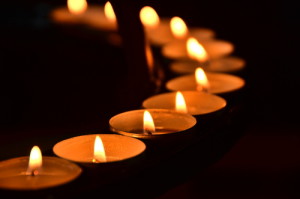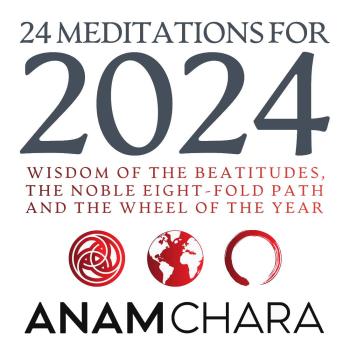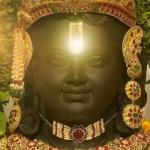How, exactly, does Christian mysticism relate to all the other “mysticisms” of the world (Kabbalah, Sufism, Taoism, Vedanta, Zen, etc.)?
A reader of this blog writes:
I have been reading your Big Book of Christian Mysticism: on page 64 you say that “Ultimately … no absolutely clear distinction can be drawn between Christian and non-Christian mysticism.” This concerns me, because you *do* seem to say in other parts of the book that there *is* a clear distinction between the two (for one, Christian mysticism is practiced “in Christ,” and while Eastern forms of mysticism seek to empty the mind, Christian is a ‘thinking’ form of meditation [pg. 218]). So, did you come to a different conclusion while writing the book, or would you still hold that Christian and non-Christian mysticism are basically the same?
Thank you for your question. I think the issue really has to do with the distinction between “Christian mysticism” as a unique expression of Christian spirituality, and “mysticism” as a more general term referring to deep spirituality regardless of its context. To parse out that distinction, let’s look at prayer.
Any religious or faith tradition that believes in one or more gods will involve some sort of prayer — that is to say, efforts to communicate with the deity. Jews pray, Christians pray, Muslims pray, Hindus pray, theistically-minded new agers pray, even some Wiccans and other pagans pray, depending on their understanding of deity.
So prayer is an element of spirituality that transcends religious identity. And certainly there are deep similarities between say, Christian prayer and Jewish prayer. But there are also profound differences. Christians pray in, through and to Christ, while Jews and Muslims do not. Each tradition has its own language and literature of prayer, and while there is some overlap (both Christians and Jews pray the Psalms, for example) there is also much that is unique to each tradition.
And when you consider the difference between the religious traditions founded on Abrahamic monotheism, and other traditions (like Hinduism), the language, practice, and theology of prayer becomes even more varied. So much so that many Christians might not feel comfortable participating in a Hindu puja.
So is prayer a universal human activity (or near-universal, since non-theists do not pray) — or is prayer merely an umbrella term for a variety of human religious activities, many of which are incompatible at a fairly deep level? Different people with different values will answer this question differently, but I think it’s a “both/and,” not an “either/or” scenario. Prayer is universal, and prayer is varied. Both are true.
The same holds for mysticism. On one level, mysticism is an umbrella term for the spiritual heart of all the world’s great spiritual and religious traditions, holding that at their heart — at a level deeper than cultural or mythological or cognitive expression, mysticism points to something universal, nondual, inclusive, and unifying, a deep place of spiritual expression where love marginalizes dogma, compassion trumps cultural identity, and unity matters more than the human capacity to judge others.
On the other hand, Christian mysticism is not the same thing as Zen, or Sufism, or Kabbalah, or any of the other great “mystical traditions” in the world. and to say that they are the same is to be willfully ignorant of the many teachings and values that define differences between the traditions.
As I write these words, I recognize that many readers of this blog will be more comfortable with the “all mysticism is the same” perspective, while others will be more comfortable with the “each mysticism is unique” perspective. Wherever you may fall on this continuum, I invite you to consider that this is yet another mystical paradox, and that both of these perspectives have a deep truth to them — even though, on the surface, they seem contradictory.
So Christian mystics anchor their faith in Jesus Christ, and the other mysticisms of the world do not share that faith. That seems to be an irreconcilable difference. And yet, the Dalai Lama and Thomas Merton regarded each other as brothers, finding a place where they could relate out of love and compassion, all0wing their cultural and religious differences to fall away. Love conquers all. And yet, when the Dalai Lama talks to Christians, he doesn’t tell them to become Buddhists or even interspiritualists; he encourages them to be good Christians.
Now, to directly answer your question: “did you come to a different conclusion while writing the book, or would you still hold that Christian and non-Christian mysticism are basically the same?”
I would still say that mysticism, in its most general sense, points to a place beyond cultural and religious identity where we recognize the unity of all humankind, the primacy of love, and the sanctity of all life. At the same time, I would still say that Christian mysticism refers to a distinctive expression of Christian spirituality, grounded in mystery and silence and joy, that embodies what St. Peter called “partaking of the Divine nature” and Christ’s insistence that we “abide in him as he abides in us” (II Peter 1:4; John 15:4). Mysticism is universal; Christian mysticism is distinctive. Both are true. It’s a paradox.
To finish with a quote from the book: “as soon as you try to put it into your own words, mysticism unfolds itself into a variety of paradoxes and seemingly contradictory truths that leave you as confused and befuddled as ever.” (p. 25)
Sorry I can’t be any clearer than that. Please don’t shoot the messenger.
Enjoy reading this blog?
Click here to become a patron.















